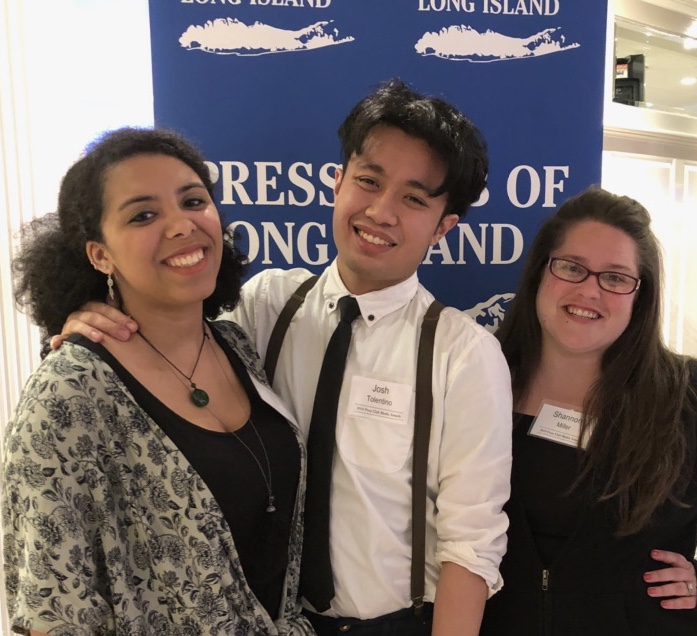Long Island University was well represented at the 34th meeting of the Society for the Exploration of Psychotherapy Integration (SEPI) held in New York City on June 2, 2018. Several alumni, current graduate students and faculty from the Clinical Psychology Program at LIU Post participated in the event.
Under the title, “Herding Cats: Practice-Research Collaboration in Psychology Training Clinics,” LIU Post’s Psy.D. program director Dr. Eva Feindler chaired a panel discussion that examined the Practice-Research Network consortium with clinical psychology faculty from LIU Brooklyn, Adelphi University and Yeshiva University. Dr. Feindler and LIU Post Prof. Tom Demaria focused on the similarities and differences of four psychology training clinics.
LIU Brooklyn Professors Dr. Kevin Meehan and Dr. Lisa Samstag addressed the question: Is it possible to integrate research measures into sessions without creating a clinical imposition for novice therapists?
Five current LIU graduate students plus one student on an clinical internship were joined by Dr. Linnea Mavrides (LIU ’08, PsyD) for a lively discussion moderated by Dr. Feindler on the topic, “What is it like to ‘grow up’ in a dual/duel orientation program?” First-year graduate students Alison Rumelt and William Rung talked about “New Beginnings: Entering into this ‘split’ family.” Stefanie Iwaniciw, now in her third year, presented “Stuck in the Middle: The Theoretical Orientation Crisis,” while Anisha Patel and Nini Slochowsky, in their fourth year, spoke about “Growing Up in a Divided World.” Kristin Ullrich, an intern at Fairmount Behavioral Health System, an affiliate of Friends Hospital in Philadelphia, discussed “Impacts in the Real World: Being on an internship after living with dueling orientations.”
Looking back, Dr. Mavrides gave what she called “A 10-Year Retrospective: Origins of My Professional Development.”
“My experience at LIU-Post gave me excellent exposure to both CBT and psychodynamic practices,” Dr. Mavrides said, “but it took becoming a professional in my own right to figure out how to get those two lenses to work together in the service of my patients.”
Lastly, Dr. Karen Starr, another graduate from the LIU Post Clinical Psychology Program, gave a psychoanalytic clinical case presentation that was followed by commentary from Dr. Feindler, who provided cognitive behavioral therapy’s perspective.
“This is a great demonstration of our faculty, students and alumni connecting with the field of clinical psychology as well as with LIU and the program,” explained Eva Feindler, Ph.D., director of LIU Post’s clinical psychology doctoral program. “Traditionally, Psy.D. programs are not known for being heavily research-focused—most are more clinically focused—but ours uniquely leans more toward research with a strong clinical component.”
For more information about the Psy.D. Program, go to http://www.liu.edu/post/psyd. If you are a prospective clinical psychology doctoral student and want to find out how you can get involved in clinical research in the program, you can contact pamela.gustafson@liu.edu for more information.



